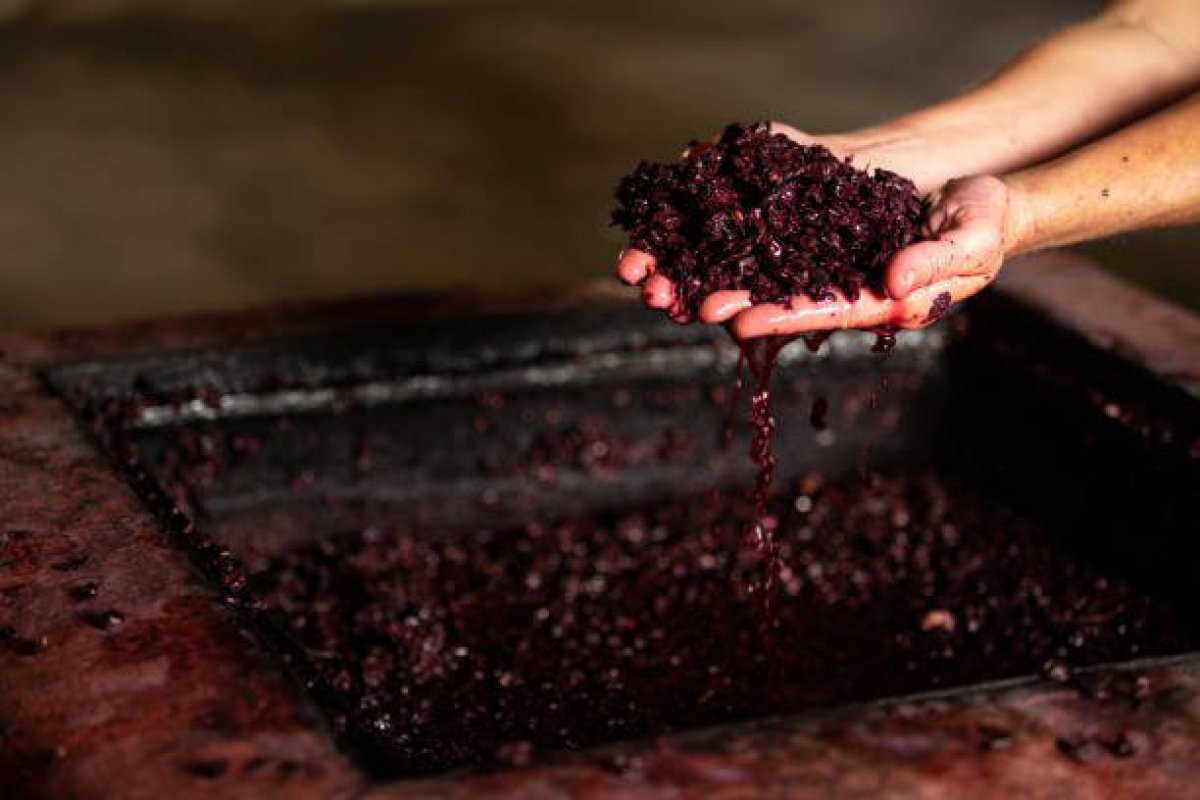
In vino veritas… If wine is so successful in the various human civilizations, it is partly because of its alcoholic side.
Alcohol which must be consumed in moderation makes people happy, participate in festive moments, in major life events:
- Champagne for a wedding.
- Châteauneuf-du-Pape great vintage to celebrate a birthday.
But without fermentation wine would remain a simple grape juice.
There are the different stages that make the grapes ferment and make it become an alcoholic beverage, stages put into practice on André Brunel’s estate.
Fermentation: a relatively recent process
A bit of history is needed: while we find evidence of wine production even before antiquity (during the paleolithic), nevertheless, fermentation is much more recent.
Indeed, our Roman, Greeks or Gallic ancestors managed to get alcohol in their drinks through cooking (this wine was called: defrutum which means liqueur wine). Fermentation as we know it nowadays making it possible to have quality wines that we appreciate is dates the 18th century thanks to the development of science.
What do we call an alcoholic fermentation?
The alcoholic fermentation is a chemical process, but nevertheless natural which will transform sugar contained into grapes, into alcohol thanks to the role of the yeasts. Fermentation is one of the stages of vinification. Before fermentation, the winegrower will have already harvest, press and decant. The product obtained after theses stages is called: the must.
How does an alcoholic fermentation work?
Fermentation is carried out through chemical reaction thanks to the yeasts which are small unicellular mushrooms (or micro-organism) which are naturally found on the vine and the grapes, which in order to grow, will use the sugars as a power supply. During this metabolic process glucose turned into alcohol. It is also possible to use sometimes cultured yeasts (rather commercial ones) to control (to secure the fermentation process) but this method is not very used in France, a place where people prefer the respect of the soil.
The key to fermentation is the temperature.
Indeed, the chemical reaction will release heat and carbon dioxide, therefore the must will heat up and sometimes even bubbles. If a temperature higher than 12°C is needed for fermentation, the winegrower must be very careful during the fermentation stage: the temperature should not rise too much either in order not to destroy the yeasts which would stop the fermentation.
Different fermentations for different wines
Each wine is unique and the fermentation will also be. The fermentation lasts between 2 or 3 weeks depending on the wine (White - Red - Rosé) or depending on its age (Young – Aging - Vintage – etc).
- Aging wines, for example, will macerate and ferment longer, at a temperature close to 25-28°C (the fermentation is short, about 7 days, but a long maceration to structure the wine).
- White wines ferment between 12-14°C.
Nowadays, to control the temperature of the fermentation and allow some subtilities in the strength of aroma or the control of sugar, the stainless-steel tanks allow the water to circulate around the must so as to obtain the ideal temperature. There is also the trickling method making the must circulate in pipes cooled with cold water or heated with hot water.
The stages of the alcoholic fermentation
The winegrower is still very busy because of the fermenting must, first, he must pump over the must, the yeasting has to be done so as to carry out the fermentation. It takes over the natural yeasts. It’s to secure the fermentation that it has to be done. Throughout the fermentation must be controlled as well as the density of the must to watch the evolution of the fermentation.
- It takes the juice from the bottom of the tank by dropping it into a vat to aerate it and to bring oxygen to the yeasts necessary to finish the alcoholic fermentation.
- Then the juice is sent back at the top of the tank to put it into contact with the solid parts of the grapes (seeds, skin etc) in order to enrich it with compounds (color, tannins).
The fermentation end
After the alcoholic fermentation a new stage starts: the malolactic fermentation, the steps of which are described in a specific article. At the end of theses stages, the wine will reach the stage when it has become pleasant to drink then bottled.
Fermentation: a complex stage which proves the skillfulness of the winegrower
As shown before, the alcoholic fermentation is a critical stage which requires skill and a scientific knowledge.
Even the best winegrowers can have to face problems during this stage, sometimes oxygen, nitrogen deficiencies will make the fermentation too slow, sometimes the heat won’t fit or ethanol will prevent the end of fermentation.
Therefore, there are many technics so as to obtain a good fermentation, as the quick protection of the must by SO2, a harvest at best maturity, a good oxygenation of musts, a good temperature management during the fermentation, the work to take care of the vineyard…
In any case, the winegrower is the best weapon for a successful alcoholic fermentation.
Published : 2022-10-18

